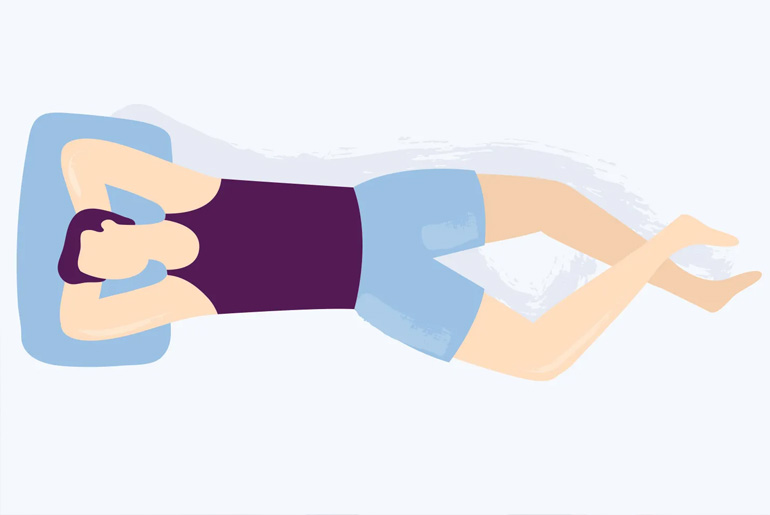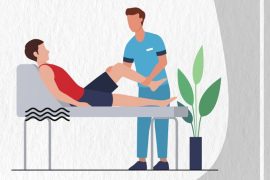In the midst of our hectic daily lives, the importance of maintaining good posture often gets overlooked, despite its fundamental impact on our well-being. How we sit, stand, and move can significantly influence our health and overall quality of life. Unfortunately, many individuals unknowingly commit common posture mistakes, which can have detrimental effects.
Three posture mistakes that should be avoided at all costs, as they can contribute to random aches and pains in the body. By raising awareness about these potential pitfalls, individuals can take proactive steps to prioritize proper posture for better physical health and overall well-being.
Sleeping on your stomach:
Sleeping on your stomach is a common posture mistake that can have negative effects on your neck, back, and respiratory function. This position requires turning your head to the side to breathe, leading to prolonged rotation of the neck, which can result in strain and discomfort. Additionally, sleeping on your stomach may cause excessive arching of the lower back, putting strain on the lumbar spine and supporting muscles.
Moreover, this sleeping position may restrict natural breathing patterns and exert additional pressure on the chest and lungs, potentially impacting respiratory function. To promote better sleep posture and overall health, it’s advisable to opt for sleeping positions that maintain the natural alignment of the spine, such as sleeping on your back or side with proper pillow support.
Twisting or cracking your neck:
Twisting or cracking your neck, especially when done forcefully, can potentially lead to injuries. While occasional joint cracking may not necessarily be harmful, it’s important to exercise caution and seek professional guidance for neck adjustments. Professional supervision ensures proper technique and reduces the risk of damaging the delicate structures in the cervical spine. The neck is a sensitive area with intricate structures, and improper manipulation can result in discomfort, pain, or more serious injuries. It is advisable to consult with healthcare professionals or trained practitioners for safe and effective neck adjustments to maintain the health and integrity of the cervical spine.
Crossing one leg over the other:
The common practice of crossing one leg over the other while sitting may seem comfortable, but it can lead to uneven pressure on the pelvic bones. This imbalance has the potential to cause the pelvis to tilt or rotate, thereby affecting the alignment of the spine. Over time, such uneven pressure and misalignment may contribute to discomfort, aches, and pains in the body. To promote better posture and spinal alignment, individuals are advised to sit with both feet flat on the ground and avoid crossing their legs for extended periods.
Indeed, prolonged sitting with one leg crossed over the other can lead to discomfort or pain, particularly in the lower back, hips, and pelvis. This posture mistakes may contribute to issues such as sciatica, a condition where pressure on the sciatic nerve causes pain, tingling, or numbness radiating down the leg.
Absolutely, it’s crucial to recognize that individual factors such as pre-existing conditions, injuries, or unique health concerns can significantly influence the impact of certain activities or habits on one’s well-being. When dealing with discomfort or specific issues related to posture mistakes, sleep positions, or physical activities, it is highly advisable for individuals to consult a healthcare professional or a qualified fitness and rehabilitation expert. These experts can provide personalized advice, assess individual conditions, and offer tailored guidance to address concerns effectively and safely. Seeking professional input ensures that any recommendations align with an individual’s unique health profile and helps in preventing potential harm or exacerbation of existing issues.
Disclaimer:
The information contained in this article is for educational and informational purposes only and is not intended as a health advice. We would ask you to consult a qualified professional or medical expert to gain additional knowledge before you choose to consume any product or perform any exercise.








